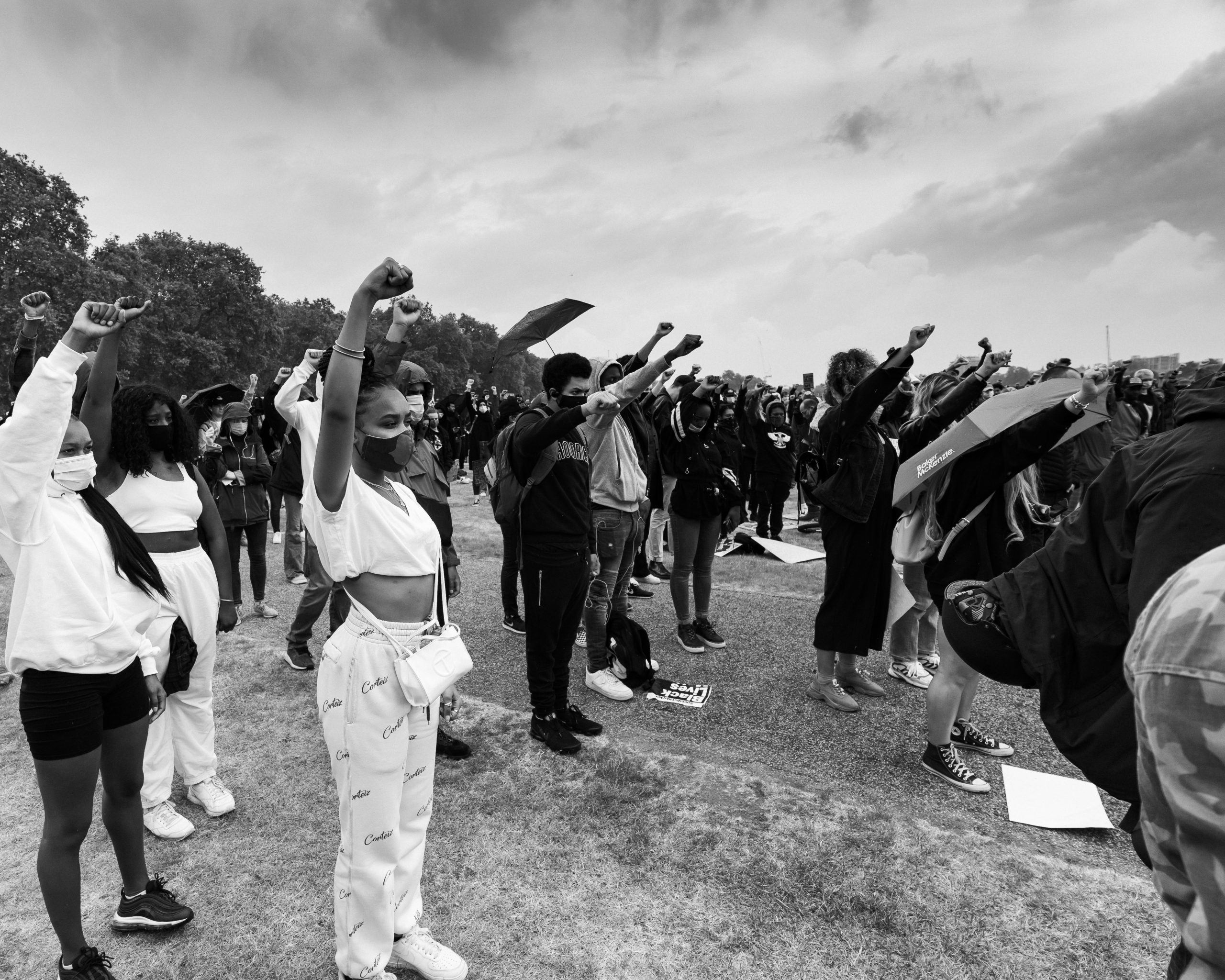To Have Real Meaning, Black History Month Must Start Centring Collective Resistance
by Annie Olaloku-Teriba
22 October 2020

Every October, we’re hit with a barrage of what can only be described as Black trivia. The same tired debate emerges on breakfast shows across the land; the little England racist demands to know why Black people get a whole month to themselves; Black talking-heads patiently explain the long injustice of Black erasure from British history, drawing from a deck of cards that gets recycled each year: did you know that Black soldiers fought in Britain’s wars, that Black labour rebuilt the country after WWII, that Black people have contributed significantly to British popular culture? By the end of the month, the regulars in this theatre of the absurd hang up their boots until next year – such is the tragedy of Black History Month.
For this reason, I’ve never been particularly interested in participating, not least in accepting any of the predictable uptick in invitations to speak, as organisations scramble to find Black faces to speak on a shoestring (read: no) budget for their annual ‘Black issues’ event. Black History Month has become the flagship store of a race relations industry, which continues to fail Black people in Britain miserably. In short, Black history continues to unfold, and Black History Month continues to fail in doing it justice.
Set up in 1987 by Akyaaba Addai-Sebo, who was working as a coordinator of special projects for the Greater London Council at the time, Britain’s Black History Month sought to shed light on the exceptional contributions of African people to European society and culture.
Inspired by the dedicated month in the US, which attends to the contributions of Black people to American society, this framework of contextualising Black history takes aim at something quite radical, but routinely stops short at tokenism. Instead of being taught about the struggles we’ve waged to transform the world, we are taught individual examples, which are presented to us as Black genius. Sanitised to achieve broad appeal, the message has been garbled beyond recognition so that now the lesson is that to make your mark as Black a person, you must – as the old adage says – ‘work twice as hard to get half as far’.
In a recent piece for CNN, Addai-Sebo said his decision to set up a Black History Month in the UK was driven by the realisation that “something had to be done to make the Black Child believe in themselves”. But what if it is precisely the way that Black history is taught that further alienates young people of colour from their power?
This structural failure has bled into other arenas. For example, the depressingly limited demands for more Black representation on reading lists, which long characterised calls to decolonise the university. The crucial question is: what use is a Black History Month which doesn’t incite the fire of protest, or provide the necessary skills to press forward with the gargantuan task of changing the world? What use is the work of Fanon on a reading list which isn’t designed to inspire just rage?
Part of this is that what constitutes an ‘exceptional contribution’ is dependent on your vantage point. Too often this has followed the same logical structure of the institutional memories that erase Black lives. An individual is identified as important, shorn of their political context and presented to us as (at times literally) a meme.
View this post on Instagram
Sure, a Black guy invented the ice cream scoop, but what of those ordinary Black and brown people whose actions helped make the world anew, those whose names and faces remain invisible to us but whose actions opened the doors we walk through today?
If Black history teaches us anything, it is that collectivity, not exceptionality, is the cornerstone of transformation – and that collectivity has never been neatly bordered along biological lines. By tussling over who counts as a Black historical figure, we miss the transcontinental links that were being forged to enable acts of mass resistance in the 20th century.
Indeed, such resistance rarely comes from where we are taught to expect it. A few brown workers walk off the shop floor and transform the British labour movement. A group of Black children refuse to go into class and reignite the South African revolution. 150 people march against the harassment of a local restaurant and spark a trial which exposes the virulent racism of the police. These histories are most valuable because they remind us not to measure our capacities by the standard foisted upon us; that our power as Black people doesn’t have to be unlocked through a proximity or legibility to whiteness. Instead, we learn that the true Black history is the history of revolution and resistance, which binds past struggles to the ones we face today.
This Black History Month has an interesting tenor for me. While the same tiresome debate rages on; while I roll my eyes at the expectation that I should celebrate yet another sanitised Google doodle of a Black Marxist; while my fingers ache from scrolling past the corporate ads using Black faces to launder their reputations, Black history is being made. The kind of history that can’t be contained in the past or set before us as evidence of a moral arc that would give us justice if we could wait long enough.
From Namibia to Nigeria, young Black people are defying the narrative that history is made by a few great men and reminding ordinary people the world over that history is made when ordinary people just like us get up to change it.
Annie Olaloku-Teriba is an independent researcher based in London, working on legacies of empire and the complex histories of race.